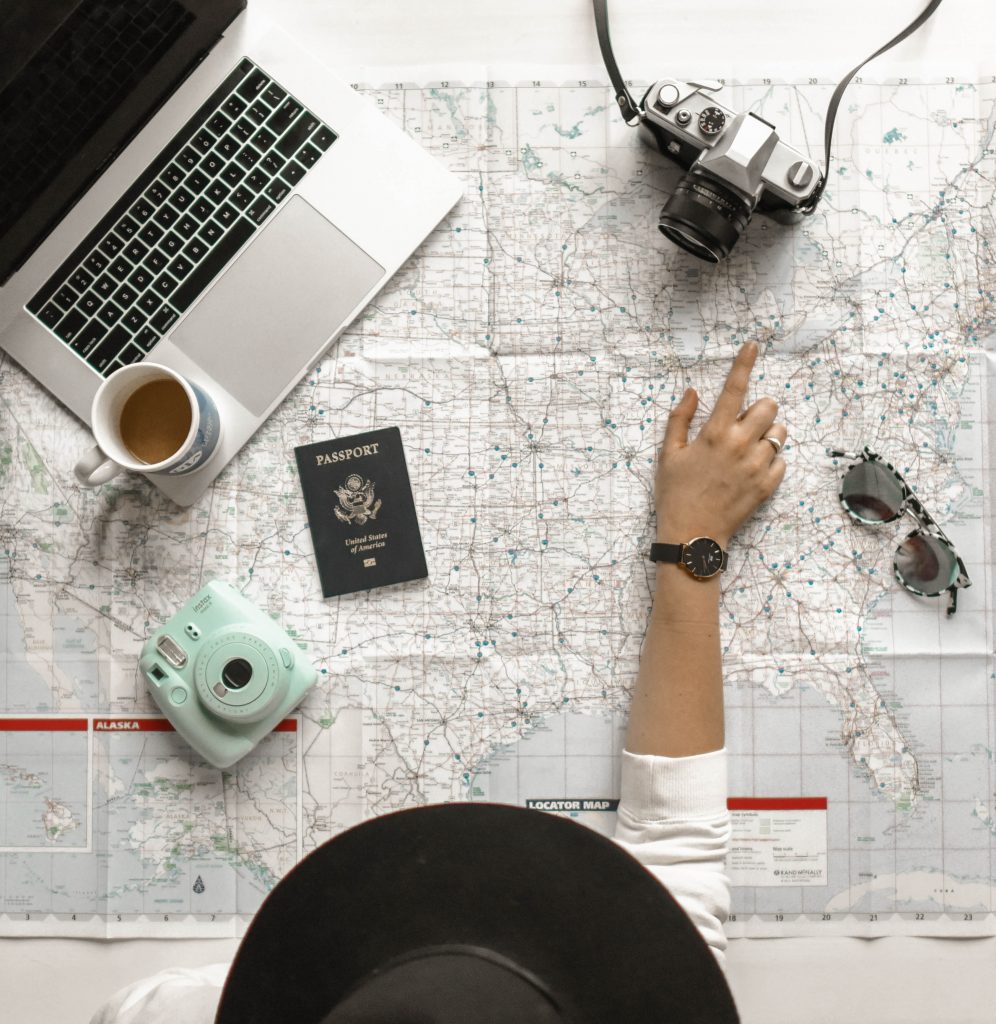Make A Plan, Any Plan
Wouldn’t it be nice to feel the wind in your hair, dip your toes in the warm, crystal-clear water, feel the silky-soft sand between your toes and slowly sip from a freshly-cracked, umbrella-ed coconut? Odds are, it feels pretty good just to think about it. Covid-19 might have turned all of our plans upside-down and especially those to do with travel, but if recent research is anything to go by, the simple act of planning and scheduling a trip is more important than ever and can actually boost your mental health.
It turns out vacationers are actually happiest as they are starting to plan a trip. According to findings by Jeroen Nawijn published in Applied Research in Quality of Life, travellers planning a trip away were reportedly happier than those with no intention of vacationing. Compiling an itinerary, researching the best hotels, flights, restaurants and local hotspots to visit, momentarily and mentally transports us out of our existing environment. Not only does trip-planning allow us to feel productive and in control, it is also a way to take charge in safeguarding future joy. Carving out some future travel to look forward to also helps to retain a sense of normalcy in life, of minimising feelings of being stuck in times of uncertainty.

According to a study co-authored by Shevaun Neupert, a professor of psychology at North Carolina State University, it is important to keep making plans whether or not they eventuate, as it can help us stay in a positive mindset and keep us from being overwhelmed by stress. “As humans, we are uniquely capable of thinking about the future,” she says. “We’re the only species that spends this much brain power planning ahead.” And it is through a cognitive process called ‘proactive coping’ that planning things – from the mundane to the bucket list-worthy – can help to combat stress. Her study involved the monitoring of over 200 participants over nine days on the way they dealt with daily stress and found those who engaged in proactive coping, whose thinking was future-oriented and who anticipated and planned for how to deal with potential hardship, were less reactive to stress.
Another 2014 study also found it is better to anticipate an experience as opposed to a thing. Researchers Amit Kumar and Matthew Killingsworth from the University of Cornwall found that satisfaction and gratification comes more from experiences rather than material items and that those who were anticipating an experience such as going on holiday were considerably happier than those anticipating buying and receiving delivery of material goods.

While we may be physically distanced from each other, we are still able to connect socially via voice and video chats, and our plans for the future are the perfect talking point for encouraging a positive outlook and keeping our social relationships alive. Killingsworth suggests, “As humans, we spend a lot of our mental lives living in the future. Our future-mindedness can be a source of joy if we know good things are coming, and travel is an especially good thing to have to look forward to.” He also poses that planning trips can be such a positive experience because they are temporary. “Since we know a trip has a defined start and end, our minds are prone to savour it, even before it’s started,” he explains. “Sometimes people even prefer to delay good experiences like a trip, so they can extend the period of anticipation.” A trip someplace new also holds enough novelty and uncertainty to keep our minds interested. “In a sense, we start to ‘consume’ a trip as soon as we start thinking about it,” says Killingsworth. “When we imagine eating gelato in a piazza in Rome or going water skiing with friends, we don’t see as much as we’d like, we get to experience a version of those events in our mind.”
That mini mental vacation in planning future events is an acknowledgement that there will be a future and that when it arrives, you can do the things you want to do, things that will feel like a return to your complete self.

